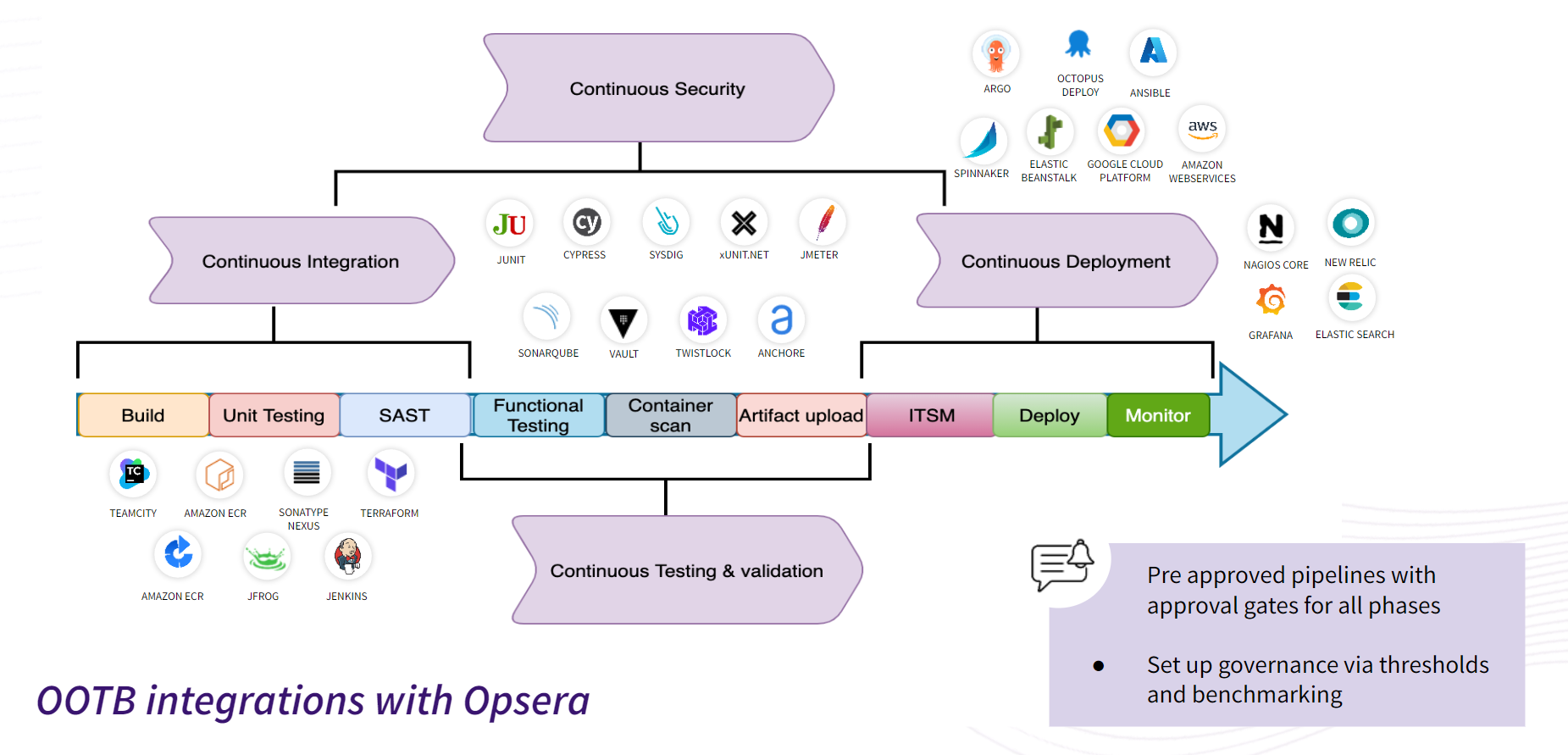The pandemic posed tremendous challenges for healthcare companies — hospitals, doctors’ offices, pharmaceutical companies, CROs, and health insurers. Patient expectations have changed. As such, providers had to change as well. We learned:
- Contactless care, telemedicine, and working remotely are necessities.
- 70% of consumers are more likely to use a provider that offers digital reminders and follow-up care.
- 50% of consumers are more likely to use a provider that offers telemonitoring devices.
- Fast changes and immature processes expose new risks and liability.
Net, net, digital transformation is a reality, not an option, for healthcare companies.
The following will share how the City of Hope accelerated their DevOps pipeline with the continuous orchestration of tools, pipelines, and insights.
Organizational Learning & Change
According to Gartner, “75% of DevOps initiatives will fail to meet expectations due to issues around organizational learning and change.”
As such, we recommend a crawl, walk, and run approach which entails:
- Crawl: define success criteria, identify the current toolchain and tech stack, create the minimum viable product (MVP) and validate, create CI/CD pipeline templates, and ensure security and quality. Fail fast and iterate. Expect this to take 30 to 45 days.
- Walk: scrum teams with Dev, Ops, Security, and Quality; drive process and culture to establish repeatability; automate end-to-end CI/CD process. Aligning teams and creating a culture of measurement and success are key at this stage.
- Run: share results across the organization, scale DevOps maturity and address gaps proactively. Data removes emotion and subjectivity from decision-making. Establish a governance framework and be in a position to get visibility into what is happening. It’s not about how fast you’re driving, it’s about how fast you are driving with some guardrails.
City of Hope
City of Hope is a nationally-recognized cancer center that has been providing outstanding care to patients for more than 100 years. They needed to develop custom software applications to provide ongoing and timely analysis of data in their precision medicine data and systems division.
Their software development process was time-consuming and manual. As part of the transformation process, City of Hope’s goal was to create a new software development process from scratch. Their challenges were familiar. Siloed Dev, Ops, Security, and Quality teams. Slow releases and approval cycles with a lot of manual processes. No visibility into velocity, performance, or security.
After having used and researched alternatives, Gorkey Vemulapalli Senior Director, Precision Medicine Data & Systems, City of Hope, decided to go with the Opsera DevOps platform. Gorkey and his team used the platform to build no-code CI/CD pipelines.
They were able to leverage the templates and toolchains offered. Then they created an MVP product to showcase to the larger organization. This enabled the creation of multiple pipelines across various tasks deploying on-prem and in the cloud while integrating security and quality gates.
One of the things that worked really well was starting with an MVP and layering in quality and then security. Then they applied the thresholds and gauges which really helped them improve maturity levels.
As a result, to date, City of Hope accelerated its
DevOps journey from “crawl” to “run” in three months.
They have realized 80% faster releases with no DevOps engineers,
25% higher developer productivity, and
100% visibility into pipelines.
With end-to-end visibility, the City of Hope DevOps team is able to make smart decisions and continue to improve the product security posture, quality, and maturity levels.
About Opsera
Opsera is a DevOps orchestration platform for any tool on any cloud. It provides toolchain automation with self-service provisioning or it integrates with any CI/CD tool. Developers, rather than DevOps engineers, are able to build no-code pipelines for SDLC, infrastructure, and SaaS while integrating security and quality. Users get unified insights with real-time logs for security, quality, dev, operations, and KPIs. This enables the dev team to ship code faster, safer, and smarter.
The core functionality of the platform includes:
- Integrations to 80+% of prominent DevOps tools.
- Automation to provide tools and pipelines in minutes with no coding required.
- Visibility to troubleshoot faster, get actionable intelligence, and enhance audit and compliance all through a single console.
- Governance to track, configure, and manage CI/CD tools via a common tools registry.
Out-of-the-box (OOTB) integrations enable the pipeline to shift left with continuous integration, continuous security, continuous testing and validation, and continuous deployment.

OOTB integrations also improve security and quality.
Instant toolchains are able to be created without scripting or grunt work. Users set up and provision with OOTB integrations and APIs from their own tech stack or from the Opsera portal. This results in easy lifecycle management with version updates and rollbacks enabling companies to rationalize their DevOps environments.
Code-free pipelines are created in minutes with built-in security and quality. This is accomplished with drag and drop workflows. Security and quality gates are integrated at every step. Users are able to set role-based thresholds and policies and build pipelines for different use cases (e.g. multi-language, AEM, ServiceNow, Salesforce, SAP, and other commercial-off-the-shelf software).
Users get unified insights across the DevOps ecosystem. Insights from all DevOps tools in a single dashboard. This enables users to troubleshoot faster with aggregated and searchable tags, and to build blueprints. The platform comes with more than 100 KPIs across planning, pipeline, security, quality, and operations. And, there’s the ability to create role-based dashboards with actionable insights.
If you would like to learn more about automating your DevOps pipeline, check out our online demo or we’ll be happy to customize a demo to address your unique situation.




